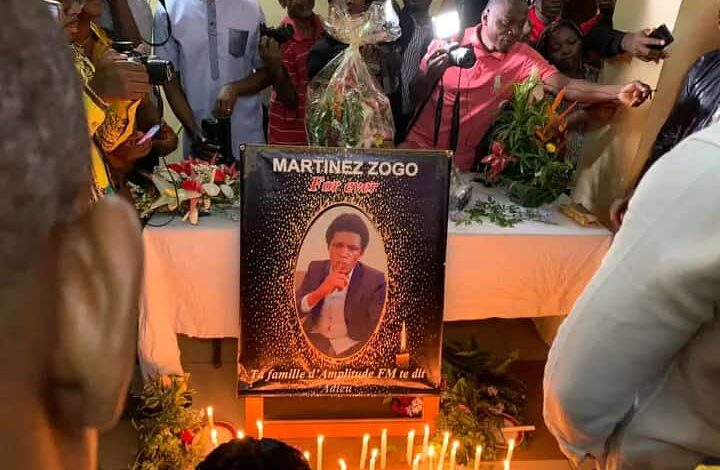‘Arizona Project’ by NAIRE and ZAM: Investigating a journalist’s death in Cameroon.
What was the story that killed Martinez Zogo, whose mutilated body was found on 22 January in a suburb of the capital of Cameroon? A team of African journalists is set to find out.
A team of West-African-based investigative journalists is travelling to Cameroon to pick up the threads of an investigation done by journalist Martinez Zogo, whose mutilated body was found in the country’s capital Yaoundé on 22 January 2023. Zogo had been abducted by masked men just outside of a police station in Yaoundé, days after he had denounced the embezzlement of public funds involving a regime-friendly media tycoon.
The Network of African Investigative Reporters and Editors (NAIRE) and ZAM have jointly decided to embark on an ‘Arizona Project’ in response to the murder. The name is derived from a 1976 collaborative journalism project in the USA state of that name, when many journalists came together to finish the story that a murdered colleague had been working on. The motto of the project, “You can kill a journalist, but you cannot kill the story,” remains relevant today.
NAIRE and ZAM emphasise that Cameroon is not the only African country experiencing increasing oppression of media and civil society, and that this initiative should also be seen as a warning about the situation on the entire continent. In the same week that Martinez Zogo’s body was found, another journalist was killed in a mysterious car accident in Rwanda, and a human rights lawyer was gunned down in Eswatini. In 2022 alone, close to sixty journalists in Africa were assaulted, imprisoned, abducted or forced into exile.
“We are particularly concerned about the impunity,” is the comment of NAIRE member Anas Aremeyaw Anas, one of the initiators of the Arizona Project and a close colleague of the late Ahmed Hussein-Suale in Ghana. In 2019, this journalist was shot dead in Ghana, shortly after a politician – who was involved in a corruption case Hussein-Suale had unearthed – had urged violence against him. “Ghanaian politician Kennedy Agyapong, who called for violent action against Suale is now a presidential candidate. The world must take note of what such individuals are doing in our countries. They should be investigated, held to account and subjected to sanctions. They love to travel to Europe and the US. Such parts of the world could help us by establishing travel and other sanctions.”
The team of journalists will land in Yaoundé today for, inter alia, initial discussions with the Cameroon justice department on the investigation into the murder of Martinez Zogo, with Zogo’s media house Amplitude FM, and with international embassies based in the capital. They will then proceed to Douala for interactions with journalists, journalist associations and press freedom NGOs.
The team is calling for media and civil society, in African countries and internationally, to support it by following its work in Cameroon closely, and by using their platforms to ensure the international spotlight is on the safety of the journalists involved. The results of the Arizona investigation will be published on ZAM and by interested partner media worldwide.
In an article for The Guardian on April 14, 2023, NAIRE member and Ghanaian investigative journalist Anas Aremeyah Anas points at a big difference between the events in 1976 that inspired the Arizona Project in the US and Cameroon in 2023. "First, the Arizona journalists would have been able to conduct their investigation with some protection from law enforcement. The organised crime figures who murdered (US) journalist Don Bolles might have killed once, but the police came out in full force to prevent any repeat. In Cameroon, Zogo touched on state corruption, which might imply state-connected forces in his torture and murder. Also, unlike in Arizona, journalists have been murdered in Cameroon before; each had been investigating - or denouncing - embezzlement of state funds enrichting kleptocratic elite."
Members of the media, civil society organisations, NGOs, academic institutions, and researchers who want to interact with the team, either in Yaoundé or Douala, or who would like to organise press events in either of those cities in Cameroon, are asked to contact ZAM’s coordinating investigations editor Evelyn Groenink at This email address is being protected from spambots. You need JavaScript enabled to view it..


